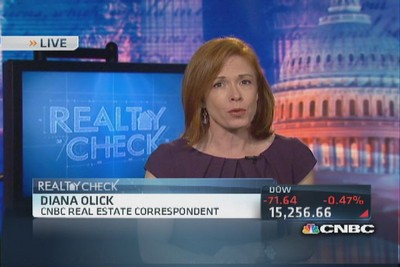Why ?
Plenty of reasons.
First, Americans do not believe in “Manhantanization”.
Well, other than the real Manhattan where Fortune 500 and the world elites must have a presence there for whatever reason, most likely egoistic, or perhaps hangout of the world biggest tech lunatics such as the case of Silicon Valley, most cities in the states are actually ghettos – Detroit is one and Canadians have been buying up their rundown houses as if they’re free (almost, going by Canadian standard) just when Americans are avoiding them like the plague.
“Suburbanization” has always been the culture there. And it will be so for a long time to come …
It’s will always be the case because car industry is the biggest industry there, and American simply like all thing big eg. for the same money, their condo is at least 10 times more spacious than the so called “condo” in Canada (see American condo vs. Canadian condo). I guess they rather sleep under the bridge than squeezing their family into a Gnome size condo. And the list goes on and on …
In another words, unless you can afford to buy up all the properties across the American continent in order to hike real estate prices, the way it is in Canada, UK, Australia or whichever else “Bubble Suspects”, you are not going to see the same realty madness in Uncle Sam’s turf. Not a chance except maybe for a few elitist spots here and there – Manhattan, Boston, and of course where Apple and Google are … Anywhere else, you better plan to live there yourself.
American market is as free and as competitive as it can get. And most important of all, they don’t mess with mortgage the way CMHC did, not anymore …
So, guess your chances of realising that sort price appreciation in real estate experienced elsewhere is not likely to happen in the U.S. for at least another century.
Nonetheless, what do I know ? Good Luck .
Government shutdown could slow housing recovery
The fight may be in Washington, but the effects of the government shutdown will ripple through every neighborhood in America—without a fully functioning government, an already tight mortgage market may become even more prohibitive. It is exactly what the housing recovery does not need.
“This is going to be very disruptive to the mortgage industry and pretty much result in a freeze of the pipeline,” said Craig Strent, CEO of Bethesda, Md.-based Apex Home Loans. “New loans can be taken, but without IRS and Social Security number verifications, [they] will not be able to proceed to closing.”
After getting burned badly in the housing crash, most lenders now check everything on a borrower’s loan application. It has become standard to verify tax returns as a quality control measure, according to Strent. If the IRS is closed, it will not process any forms, including tax return transcripts, so the loan applications will be stalled. For government workers themselves, it’s even worse, because they will likely be unable to verify their employment on a mortgage application.
(Read more: Here comes the DC shutdown: What you need to know)
At the Federal Housing Administration, which represents about 15 percent of the mortgage market, the lights will still be on, but the staff will be reduced.
“The Office of Single Family Housing will endorse new loans under current multi-year appropriation authority in order to support the health and stability of the U.S. mortgage market,” according to a post on the federal Housing and Urban Affairs’ website. Lenders with “delegated authority” will be able to go on making FHA loans. That is about 80 percent of FHA lenders. They will also be able to get FHA case numbers through the usual on-line service. The FHA will continue to collect insurance premiums from borrowers during a shutdown as well.
“The FHA program can weather a shutdown as long as it doesn’t last too long,” said Guy Cecala of Inside Mortgage Finance. “But a shutdown could also seriously impact FHA’s ability to police lenders and loan quality.”
The shutdown, if lengthy enough, could hit home mortgage refinances as well, delaying rate locks and resulting in costly extension fees.
(Read more: 800,000 out of work as US government shuts down)
“What could happen is that our customers could be put in a hold status and then subject to interest rate gyrations that are very likely to occur between the time a government shuts down and reopens,” said David Zugheri of Houston-based Envoy Mortgage.
Of course, mortgage rates could move lower if investors head to the relative safety of the bond market and drive yields down. Mortgage rates follow loosely the yield on the 10-year Treasury.
“Rates may go up this week if…Friday’s job’s report stays on the schedule,” said Matthew Graham of Mortgage News Daily. “Markets would have to defend against the possibility of a strong report reigniting October taper expectations.”
| Mortgages |
|
||||||||||||||||||||||||||||
|
|
If the shutdown lasts for a few days or even a week, the immediate effects on mortgage availability will be minimal. It’s the message this whole battle has already sent that is already doing much of the damage.
“It certainly won’t help housing. Among other things, it is likely to spook would-be homebuyers,” said Cecala.
Consumer confidence is a key component of the housing recovery, and while rising home prices have helped, more uncertainty in the economy can only hurt.
(Read more: ‘Obamacare’ exchanges start up)
“Some home-buying consumers are reluctant to buy because of the uncertainty,” said Brad Hunter, chief economist at Metrostudy. “They see the factions in Congress as ‘daring’ each other, with extremely high stakes. People are not especially comfortable making the biggest investment of their life when the government seems to be unable to solve important problems.”
—By CNBC’s Diana Olick. Follow her on Twitter @Diana_Olick. CNBC’s Stephanie Dhue contributed to this report
